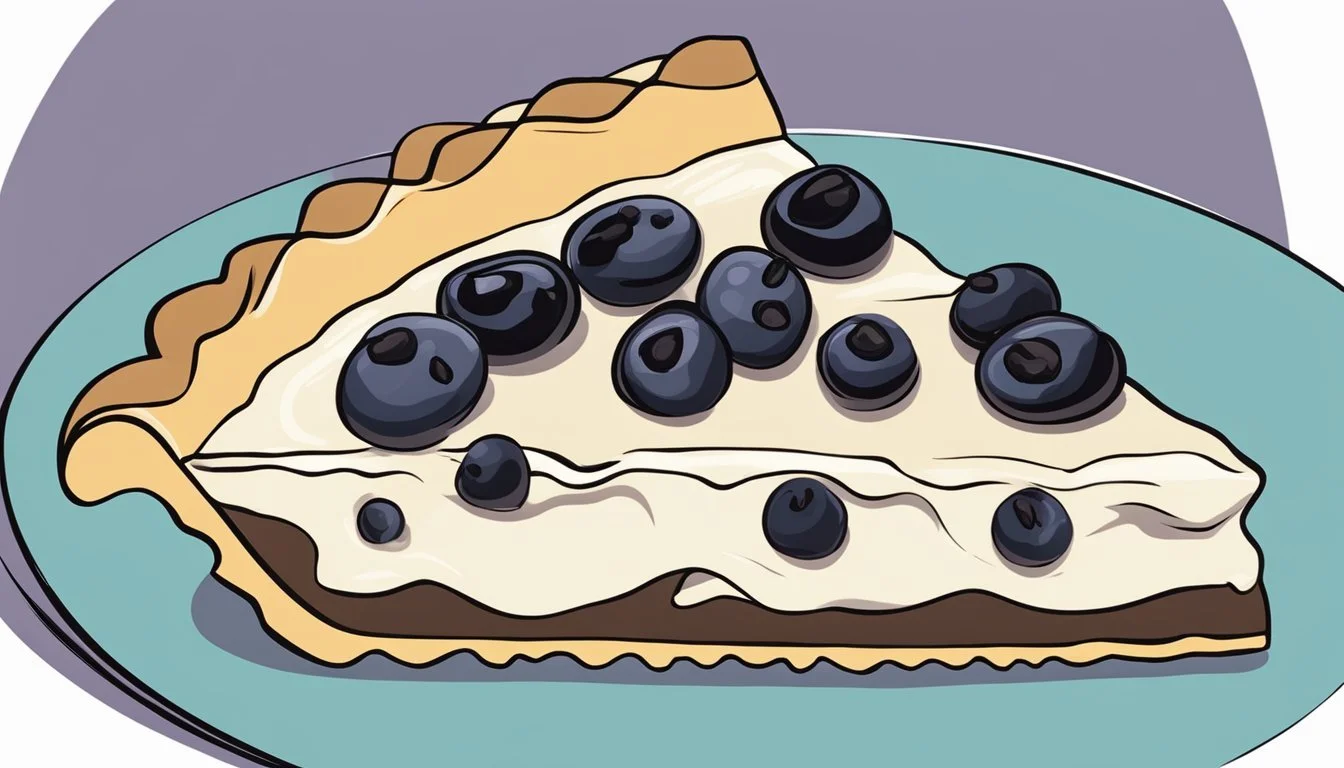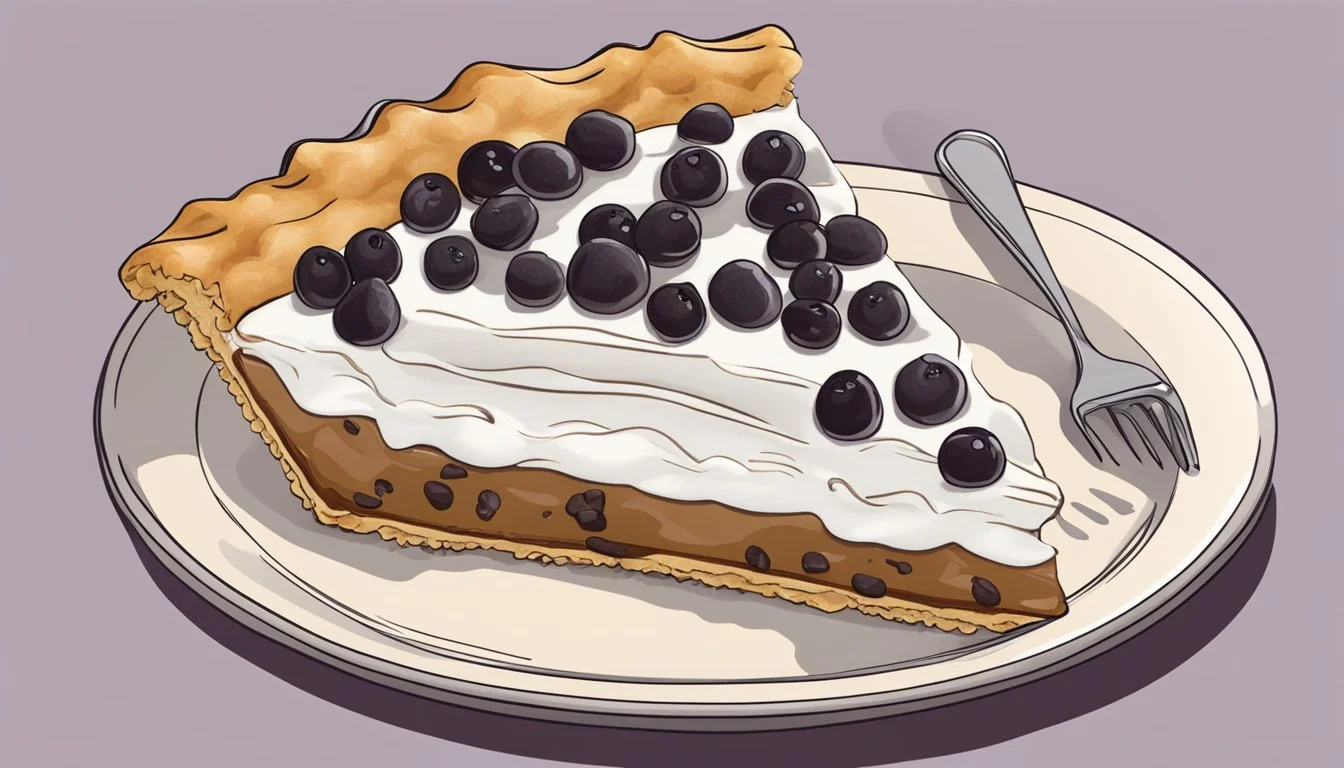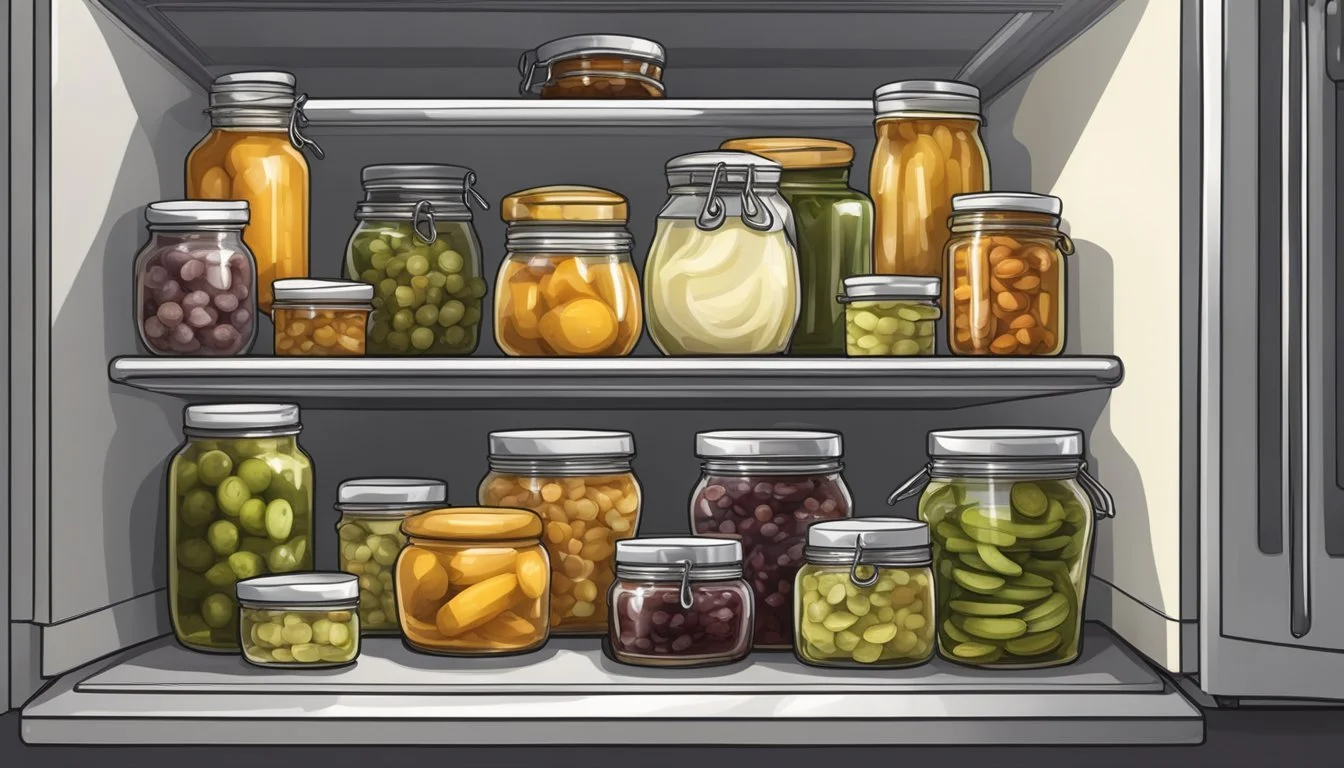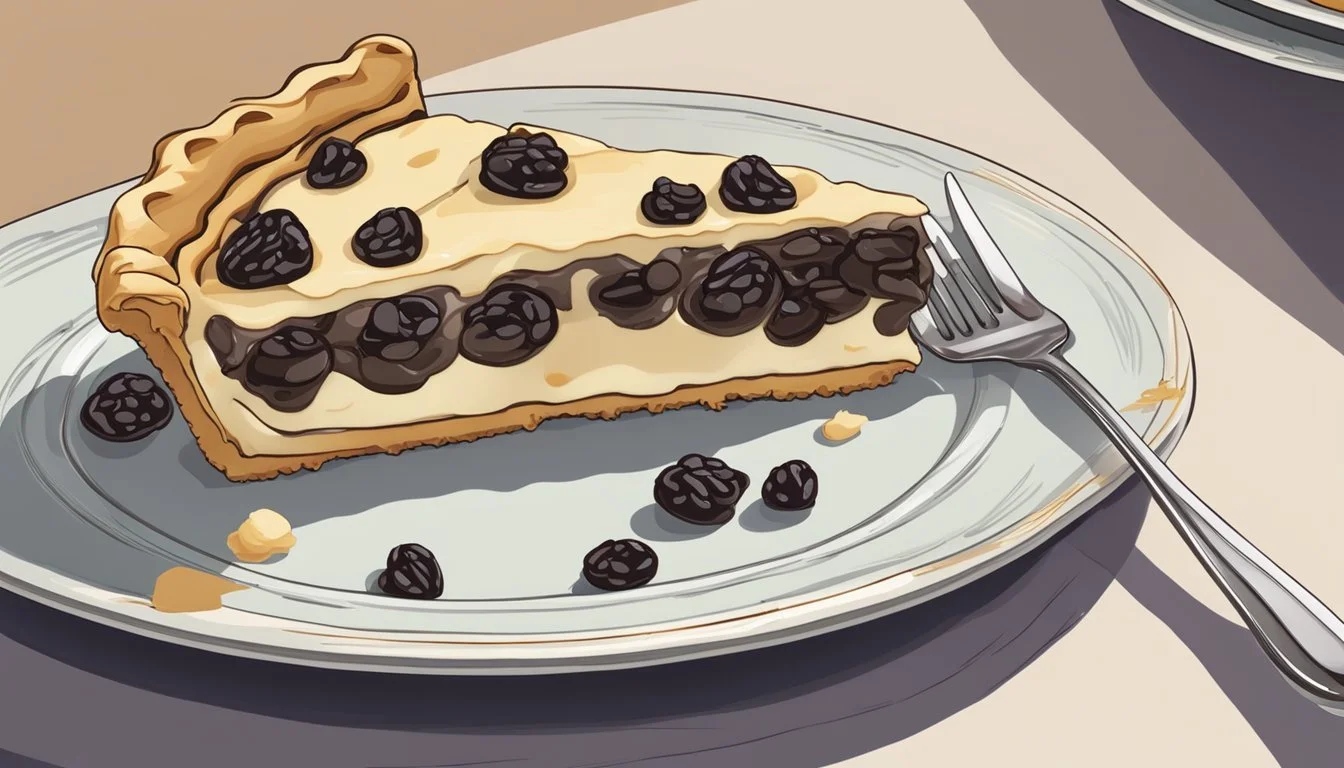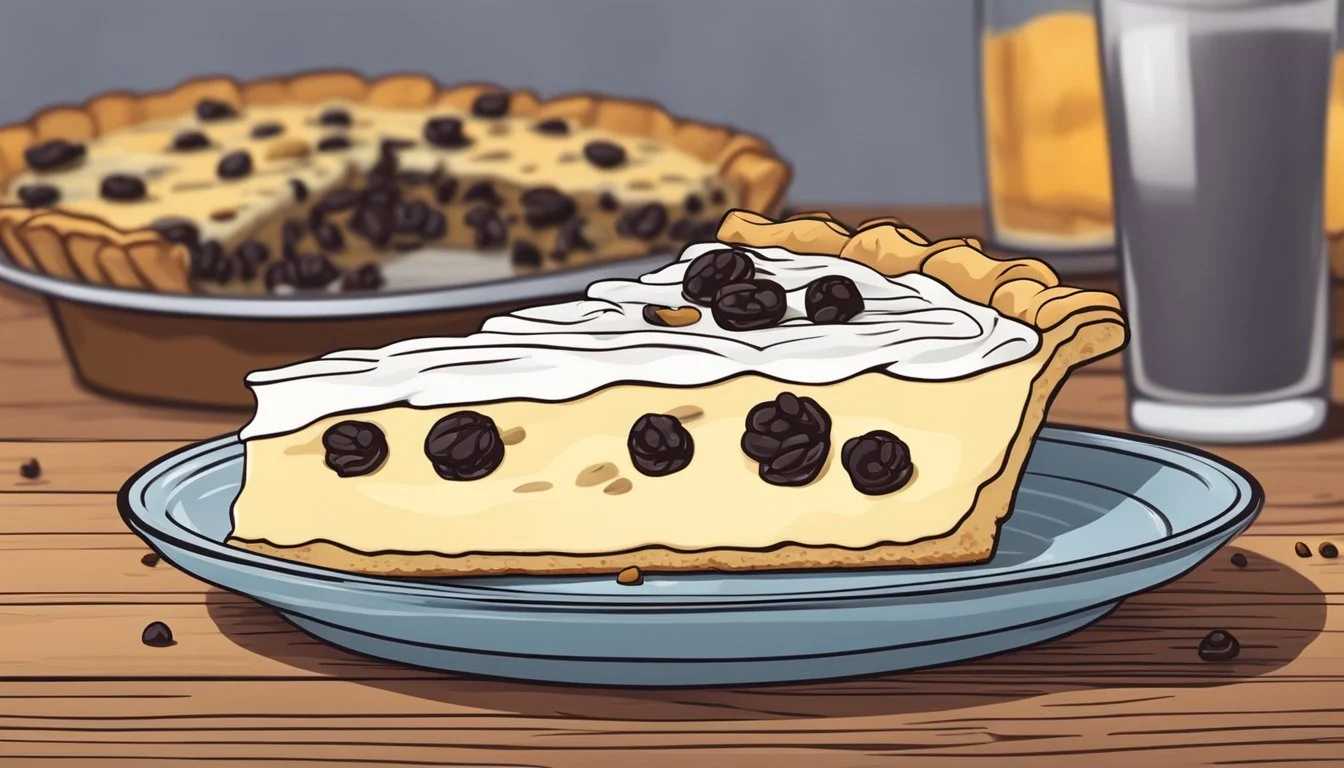Is Sour Cream Raisin Pie Vegan?
Understanding Its Ingredients
Sour cream raisin pie, a classic dessert deeply rooted in American baking tradition, typically features a filling of plump raisins suspended in a rich custard made from sour cream, sugar, and eggs, nestled within a flaky pastry crust. Initially, it may seem like this traditional pie wouldn't meet vegan dietary standards, due to its reliance on dairy and eggs. However, modern variations of this recipe have been adapted to align with a vegan lifestyle, substituting plant-based ingredients without compromising the pie's indulgent quality.
With the growing prevalence of veganism, there is an increased demand for vegan-friendly versions of beloved desserts. Culinary creativity has led to the development of substitutes like coconut cream or cashew cream to replace sour cream and flax eggs or applesauce in lieu of chicken eggs. These adaptations not only make the pie suitable for vegans but also introduce new flavors and textures to the dessert. Additionally, ensuring the pie crust is made without butter or lard and opting for vegan sweeteners like maple syrup or agave nectar further aligns the pie with vegan dietary choices.
Nevertheless, individuals interested in a vegan sour cream raisin pie should scrutinize recipes and ingredient labels closely. Many premade pie crusts and commercial sour creams contain animal-derived components, which necessitate diligence for those adhering to a strict vegan diet. The possibility of enjoying a sour cream raisin pie that aligns with vegan principles shows the versatility of this comfort food classic and the innovative spirit of plant-based cuisine.
What Is Sour Cream Raisin Pie?
Sour cream raisin pie is a traditional dessert that features a unique combination of sweet raisins and a tangy sour cream custard filling, often topped with meringue.
Origins and Cultural Significance
The origins of sour cream raisin pie trace back to the American Midwest, where it became a staple in Mennonite and other German American communities. Often referred to as funeral pie, it was commonly served during somber occasions. Over the years, it gained popularity across the region. Its presence at the Iowa State Fair highlights its cultural significance, standing as a beloved treat that embodies the comfort of Midwestern desserts.
Key Ingredients
Sour Cream: The key component of the custard filling, imparting a creamy texture and a slight tanginess.
Raisins: Sweet and chewy, often boiled to plump them up before adding to the filling.
Custard: A mixture typically involving eggs, milk, and sugar, spiced with cinnamon and sometimes cloves.
Meringue: A fluffy topping made from beaten egg whites and sugar, occasionally stabilized with cream of tartar.
Pie Crust: Usually a blind-baked, buttery, and flaky crust serving as the base of the pie.
Bold spices such as cinnamon lend warmth to the overall flavor, making sour cream raisin pie a distinctive type of custard pie cherished within the repertoire of American Midwest desserts.
Exploring the Vegan Concept
In the realm of vegan baking, understanding the ethos of veganism and the array of dairy and egg alternatives is essential for recreating traditional desserts like sour cream raisin pie.
Defining Veganism
Veganism is a lifestyle choice that excludes all forms of animal exploitation and cruelty, which extends to diet, clothing, or any other purpose. In terms of diet, this means abstaining from all animal-derived products, including meat, dairy, eggs, and honey. Vegans opt for foods that are derived entirely from plant sources, focusing on a balance of macronutrients that includes plant-based proteins such as beans, lentils, and nuts.
Dairy and Egg Alternatives in Baking
In vegan baking, traditional dairy and egg ingredients must be replaced with plant-based alternatives that mimic the functionality of the originals.
Dairy Alternatives: A wide range of non-dairy alternatives are used in place of dairy products. Vegan butters are often made from plant oils and can be swapped in at a 1:1 ratio for butter. Almond milk, soy milk, and oat milk are common replacements for cow's milk due to their neutral flavors and similar consistencies. Vegan sour cream and cheese alternatives are also available, often based on coconut oil or nut bases, to provide the requisite creaminess and tang to recipes.
Egg Alternatives: Eggs add structure and leavening to traditional baking recipes. To achieve similar results without eggs, vegans use various substitutes, including:
Flaxseeds or chia seeds mixed with water, which create a gel-like consistency.
Commercial egg replacers, which are formulated to closely replicate the properties of eggs in baking.
Pureed fruits like bananas or unsweetened applesauce, which can add moisture and binding properties.
With the right combination of these substitutes, it is possible to replicate the texture and flavor of traditional baked goods, such as sour cream raisin pie, without using any animal-derived ingredients.
Recipe Composition and Preparation
Sour cream raisin pie traditionally includes a creamy filling enriched with eggs and sour cream, contained within a flaky crust. This section provides specific guidance on replicating the classic recipe and adapting it for a vegan diet, detailing the crust creation, ingredient substitutions, and the baking process.
Classic Sour Cream Raisin Pie Recipe
Ingredients for the classic sour cream raisin pie filling typically include sour cream, sugar, flour, eggs, and raisins. Spices such as cinnamon and cloves may be added for flavor. The concoction is nestled in an unbaked pie crust that generally consists of flour, butter, water, and salt.
Converting to Vegan: Substitute Ingredients
To create a vegan version, substitutes must be carefully selected. Sour cream can be replaced with a dairy-free alternative made from soy, almond, or coconut base. Eggs can be substituted with cornstarch or flaxseed mixtures to maintain the filling's texture. Vegan butter or coconut oil can be used in lieu of traditional butter for the crust.
Preparing the Vegan Pie Crust
For the crust, combine 1 1/4 cups of flour, 1/2 teaspoon of salt, and 1/3 cup of vegan butter or coconut oil. Use an electric mixer or a fork to blend until the mixture resembles coarse crumbs. Gradually add 4 to 5 tablespoons of cold water until the dough comes together. Press into a disk, wrap, and chill before rolling out.
Mixing and Baking Instructions
Preheat the oven to 350°F (175°C). For the filling, mix the vegan sour cream alternative with granulated white sugar and flour until well combined. Stir in the golden raisins, and spices if desired, before pouring into the rolled-out homemade pie crust. Place it in the oven, baking until the filling is set, which typically takes about 45-50 minutes. Edges of the crust should be crimped to prevent leaking and to create a decorative edge. After baking, let the pie cool to allow the filling to further set before serving.
Garnish and Serving Suggestions
When serving sour cream raisin pie, the choice of garnish and accompanying beverages can enhance the flavors and overall experience. The use of meringue topping brings a sweet and airy finish, while pairing with select beverages like coffee or tea balances the palate.
Meringue Topping
Meringue offers a classic complement to sour cream raisin pie. For optimal results, egg whites should be whipped until they form stiff peaks before gently incorporating powdered sugar. This mixture is then spread over the pie and baked until golden brown. Achieving a meringue with a crispy exterior and a soft, marshmallow-like interior is a sign of a well-executed garnish.
Accompanying Beverages
The richness of sour cream raisin pie pairs well with hot beverages that provide a contrasting note. Coffee, brewed to be robust and slightly bitter, cuts through the sweetness and creaminess of the pie effectively. Alternatively, tea offers a more delicate option, with flavors like Earl Grey or Oolong complementing the spiced and tangy notes of the raisins. For those seeking a colder accompaniment, a scoop of vanilla ice cream can also serve as a refreshing contrast.
Storing and Preservation
Proper storage is crucial for maintaining the quality and safety of sour cream raisin pie. It is essential to address the specifics of refrigeration and the expected shelf life for ideal preservation.
Refrigeration and Shelf Life
When storing sour cream raisin pie, refrigeration is a must due to its dairy content and egg-based custard. The pie should be stored in an airtight container to prevent it from absorbing other flavors and odors present in the refrigerator. As for shelf life, properly refrigerated sour cream raisin pie typically remains fresh and safe to consume for 3 to 4 days. It's important to note that the quality may diminish over time, which holds especially true for the crust, as it can become soggy.
Leftovers should be covered with plastic wrap or aluminum foil or placed inside a pie container with a fitted lid before placing them in the refrigerator. Avoid leaving the pie at room temperature for more than two hours, as this increases the risk of bacterial growth. If there is any doubt about the safety of the pie, it is better to err on the side of caution and dispose of it.
Nutritional Insights
When assessing the nutritional value of sour cream raisin pie, it is essential to consider the individual contributions of its key ingredients. Each component brings distinct nutritional properties to the table, from minerals to proteins.
Health Benefits of Ingredients
Sour Cream: Traditionally, sour cream is a dairy product rich in calcium and protein, which are vital for bone health and muscle maintenance. However, it is also high in fat, and the calorie content should be considered within the context of an overall balanced diet.
Raisins: As a dried fruit, raisins are a good source of iron and potassium. Iron is crucial for transporting oxygen in the blood, while potassium helps maintain proper heart function and muscle contractions. They also contain small amounts of calcium and protein and contribute natural sweetness to the dish.
Iron: Raisins contribute significantly to the iron content of the pie, supporting healthy blood cell function.
Calcium: Found in both sour cream and raisins, calcium is important for maintaining strong bones and teeth.
Potassium: This mineral, present in raisins, aids in fluid balance and nerve signals.
Protein: It is primarily sourced from the sour cream, playing a role in repairing tissues and making enzymes and hormones.
The overall nutritional value of sour cream raisin pie, while encompassing beneficial nutrients, should be consumed in moderation within a balanced diet due to the potential high-calorie content from the sour cream and added sugars.
Tips and Tricks
In the realm of vegan sour cream raisin pies, quality and creativity take center stage. Here are specific techniques to ensure that vegan chefs can craft a delicious pie with a creamy filling and fluffy meringue without compromising on the integrity of traditional flavors.
Ensuring Quality in Vegan Baking
Quality Ingredients: A perfect pie begins with quality ingredients. To achieve a creamy texture similar to full-fat sour cream, one might opt for blended cashews or a store-bought vegan sour cream. For a sweet touch, granulated sugar can be replaced with maple syrup or agave nectar to keep the filling vegan yet indulgent.
Plump Raisins: For plump and juicy raisins, soak them in hot water or a mixture of water and vinegar before use. This not only plumps them up but can also take out any impurities. Draining the raisins well ensures the creamy filling is not watered down.
Effective Techniques:
Whisking: When making the meringue, use a clean whisk to beat aquafaba (the liquid from canned chickpeas) or egg white substitutes until they become a fluffy meringue.
Baking: Utilize a preheated oven and keep an eye on the pie. Once the edges are golden, place the pie on a wire rack to cool down uniformly.
Creative Variations
Adding Spices: Enhance the pie with a pinch of clove or nutmeg to elevate the pie's flavor profile.
Vegan Meringue Tricks: To create vegan meringue that holds up, add a bit of cream of tartar to the aquafaba, and whip until stiff peaks are formed.
Additional Tips:
Homemade vs. Store-Bought: A homemade pie crust is always preferable, but vegan chefs short on time can opt for a premade store-bought pie crust. Just ensure it's free from animal-derived ingredients.
Decoration: For those who enjoy a little elegance, spreading the meringue with a spatula and creating peaks can add a decorative touch to the pie before baking.
By adhering to these practices, vegans can still enjoy the nostalgic charm of raisin pies—with all the fluffy meringue and creamy filling but without the reliance on animal products.
Conclusion
Sour cream raisin pie, a dessert with deep roots in American culinary tradition, primarily consists of dairy products and eggs. Sour cream and eggs are pivotal ingredients for the custard filling, providing its characteristic richness and structure. The addition of raisins, a plant-based food, doesn't offset the dairy and egg content that defines the pie.
Given its reliance on animal-based ingredients, traditional sour cream raisin pie is not vegan. However, for those adhering to a vegan diet, there exist alternatives to create a vegan-friendly version. One could substitute dairy sour cream with plant-based sour creams—made from soy, cashews, or coconut milk. Egg replacements could include silken tofu, flaxseed meal, or commercial vegan egg substitutes. Even with these modifications, ensuring that the pie crust is free from butter and lard is imperative as these are also non-vegan fats commonly used in pastry.
In summary, the authentic recipe for sour cream raisin pie falls outside the vegan spectrum. Nevertheless, through innovation and substitute ingredients, a vegan version is feasible for those wishing to enjoy a plant-based variant of this classic pie.

